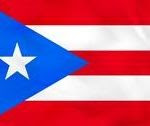Estate Planning for Puerto Rican Clients

Puerto Rico is a territory of the United States. Those born in Puerto Rico carry U.S. passports. But, from an estate planning perspective, they hold a unique place.
If a Puerto Rican is living in the United States, they are estate taxed just like other U.S. citizens. In other words, their taxable estate includes their worldwide assets, no matter where their assets are located. They also have the same estate tax exclusion as other U.S. citizens and residents, $11.58 million in 2020.
However, if they are living in Puerto Rico and if they only have U.S. citizenship due to their birth in Puerto Rico, then they are taxed as non-resident aliens. In other words, they are taxed only on their U.S.-situs assets, like real estate in the U.S.
Unfortunately, these individuals would have a dramatically lower exclusion of only $60,000. This is the same exclusion as those people who are non-resident aliens. By comparison, someone born in the United States, even if they live outside the United States, are taxed on their worldwide assets and enjoy an exclusion of $11.58 million.
Let’s take a look at the following example:
Maria was born in Puerto Rico and that is the only reason why she has a U.S. passport. Maria lives in Puerto Rico and decided to purchase a vacation home in Miami worth $1 million. Maria has assets in Puerto Rico and outside the United States worth $4 million.
If Maria passed away owning these assets, her estate will owe a federal estate tax on $940,000, the value of her vacation home in Miami, less her $60,000 exclusion.
Maria decides to move to Miami and live in the property which had previously been her vacation home. If Maria dies after the move, she would owe federal estate tax on $5 million, the value of all of her worldwide property. However, she would have an exclusion of $11.58 million and therefore would not owe any federal estate tax.
Puerto Ricans are taxed in a special manner for federal estate tax purposes. These individuals are estate taxed in a unique way, depending upon whether they are living in the United States or living in Puerto Rico.
While living in the United States, they are treated just like any other American citizen. But, while they are living in Puerto Rico, they are treated differently. Therefore, Puerto Ricans should be mindful of these transfer tax differences and the federal estate tax burden they might owe by owning U.S.-situs assets (such as real estate in the U.S.) while they are living in Puerto Rico.


Comments are closed.